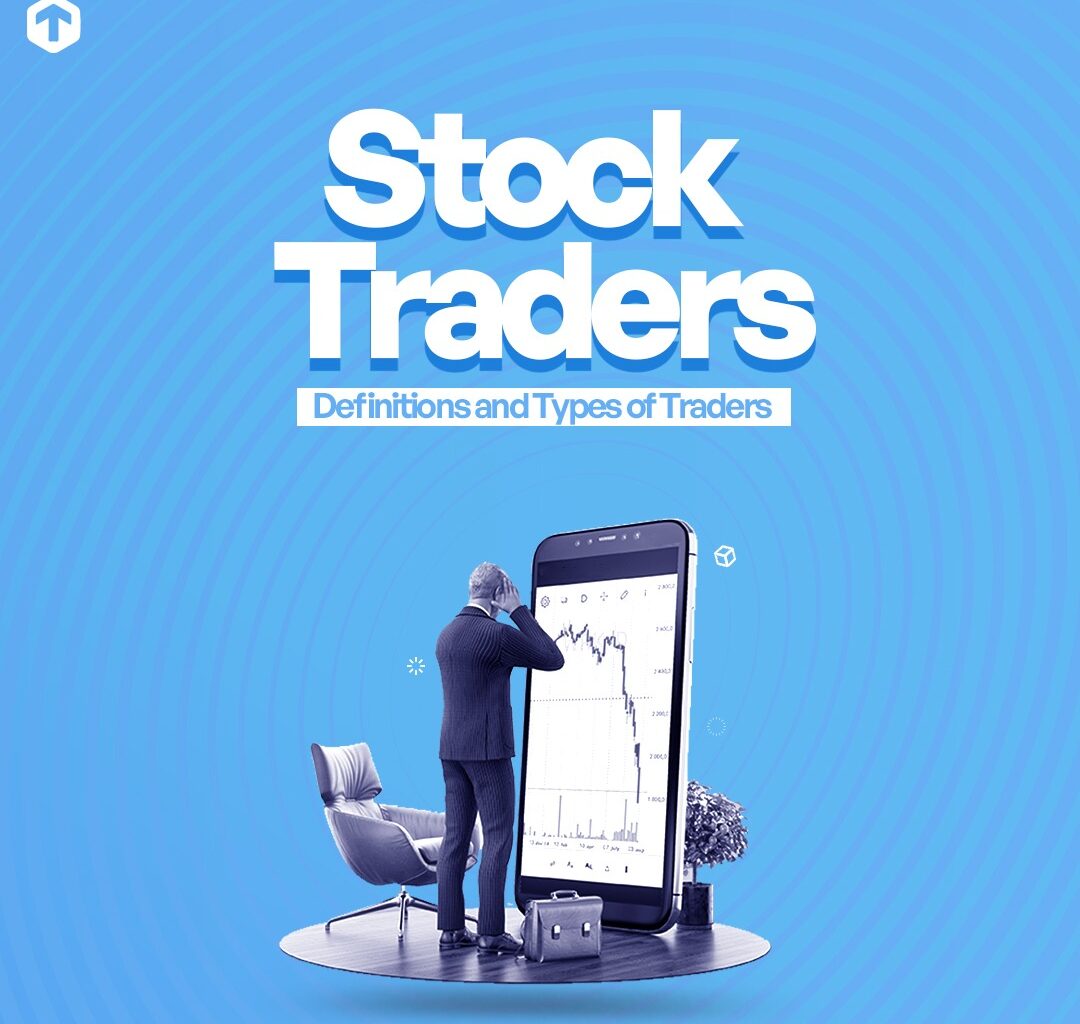Just like a football match can not be played without players, the stock market can’t function without stock traders. This is because the market relies on traders to make transactions and keep the market running smoothly.
Without the traders, it would be like a soccer match with no players – a pretty boring affair.
Stock traders play a crucial role in the financial markets. They provide liquidity, which allows for efficient price discovery and smooth trading of securities. If there were no stock traders, the markets would be less efficient and more volatile.
In this post, I’ll break down the different types of stock traders and what makes each of them unique.

Who is a Stock Trader?
A stock trader is a person who buys and sells stocks to make money in the stock market. A trader can be individuals trading for themselves or professionals trading for a company. Traders participate in financial markets by buying and selling stocks, currencies, and other things to make small, frequent profits.
Traders are essential to the stock market because they provide liquidity. Their constant buying and selling help ensure smooth price movements and efficient markets. However, being a successful trader requires skill, discipline, and a solid understanding of market trends.
Types of Traders in the Stock Market
1. Scalping Traders
Scalping traders are people who make many quick trades in a day, often holding onto stocks for just a few minutes or even seconds. They’re looking for small profits on each trade, and they use technical analysis to find opportunities to buy or sell.
Scalpers might look at charts and indicators to find stocks that are trending in a certain direction, and then buy or sell them accordingly. They’re not concerned with the long-term prospects of a company, but rather with the short-term price movements.
2. Day Traders
These types of traders are like sprinters in a race – they go in fast and try to make a quick profit. Day traders never hold a position from one trading day to the next – They buy and sell stocks within a single day, looking for small price movements that they can capitalize on.
Day traders often use sophisticated trading tools and strategies to help them make the most of every opportunity.
3. Swing Traders
Swing traders are traders who buy and sell stocks within a short period – typically a few days or weeks. Unlike the day traders, they take more time to monitor stocks while evaluating the opportunities available.
They look to capitalize on short-term price movements, and they try to get in and out of trades quickly. Swing traders are in the middle, focusing on quick profits while still being willing to wait for the right opportunities.
For example, a swing trader might notice that a stock’s price has been going up for a few days, and decides to buy the stock in the hope that the price will continue to rise. They might hold onto the stock for a few days or weeks, and then sell when the price has gone up enough to make a profit.
4. Position Trader
These traders take a longer-term approach to trading stocks. They are also known as buy-and-hold traders. They focus on fundamental factors like company earnings, industry trends, and the overall economy. These traders can hold onto stocks for months or even years – they’re willing to wait for the right opportunities to buy or sell.
Position traders are not as concerned with short-term trends or daily price movements. Instead, they’re looking at the big picture and trying to make the best long-term investments.
How to Become a Stock Trader?
Want to start trading? Follow these steps:
- Choose Your Trading Style: Decide whether you want to be a scalper, day trader, swing trader, or position trader.
- Download a Stock Trading App: Apps like Trove make it easy to start trading.
- Open & Fund Your Account: Deposit money into your trading account.
- Learn & Develop a Strategy: Study stock market trends, technical analysis, and risk management.
- Practice with a Demo Account: Before risking real money, use a demo account to refine your strategy.
- Start Small & Scale Up: Begin with small trades and gradually increase as you gain experience.
Read Also: How to Invest in US Stock Market from Nigeria

FAQs
1. How much money do I need to start trading stocks?
The amount varies depending on your trading style. Some brokers allow you to start with as little as $10, while others may require more substantial capital.
2. Can I trade stocks without experience?
Before investing real money, we recommend starting with a demo account. The Trove app offers a demo account, along with educational resources like Trove University, where you can learn and practice risk-free
3. What’s the best stock trading app?
There are several great apps available, but Troveapp is an excellent choice for Nigerian traders looking to invest in both local and international markets.
4. How do I minimize losses while trading?
Use stop-loss orders, trade with a well-defined strategy, avoid emotional trading, and only invest money you can afford to lose.
Conclusion
In the stock market, there are different types of traders such as day traders, swing traders, position traders, and scalping traders. Each type of trader has its own set of skills and strategies, but all of them require dedication and hard work.
To become a stock trader, you can download the Trove app and start by enrolling at Trove University, where you will learn about the stock market. Remember, patience and discipline are key to success in the world of trading.




